Inflamed or enlarged veins – typically called varicose veins – can make your legs look quite unsightly. Not only do they look bad, they can also cause a feeling of heaviness in your legs. That discomfort can make it difficult to handle your day-to-day tasks. You can treat this condition by undergoing a surgical procedure, but other remedies may work as well. One good option is to use apple cider vinegar. Let's find out how apple cider vinegar (ACV) can help with your condition.

How to Apply Cider Vinegar
Apple cider vinegar can help deal with your varicose veins, but you need to know how to use it properly. Here are a few simple ways to use apple cider vinegar for varicose veins.
1. Direct Application
Take a few drops of apple cider vinegar (ACV) and apply directly to the affected area. Now, massage the area for a few minutes in circular motions for relief.
2. Use Sterile Gauze
Take sterile gauze and soak it in ACV. Now, place it over your varicose veins for a few minutes. This will help reduce the discomfort and make your veins less prominent.
3. Make a Paste
Combine 3 tablespoons of Aloe Vera gel, half a carrot, and half a glass of ACV. Apply the mixture directly to your varicose veins. Massage the area in using upward strokes to stimulate blood circulation. Use lukewarm water to wash the area after half an hour.
4. Use Medical Cloth
Simply take a medical cloth that you can use for a bandage, and soak it in ACV. Tie it around your lower legs or thighs for half an hour. Remove it after 30 minutes and wash your legs gently. Regular application will help make your condition better.
5. Drink Apple Cider Vinegar for Varicose Veins
Along with applying ACV directly to the affected area, you can also include ACV in your diet to get better results. You simply need to add a couple of teaspoons of ACV to a cup of water and drink it before meals. You can also add a teaspoon of honey to this mix to improve taste. Drinking ACV works by directly treating your inflamed veins. You are going to get good results if you stay consistent with the use of apple cider vinegar – you may have to wait a couple of months to see results.
6. Other Helpful Notes
- Use ACV on a small area of your skin first to ensure you are not allergic to it. It may prove a bit too acidic for people with sensitive skin.
- Apple ACV after lying down on a flat surface with something under your ankles to limit blood circulation to the legs.
Other Remedies for Varicose Veins
Using apple cider vinegar for varicose veins is an effective remedy, but there certainly are many other natural remedies to help treat your condition. Here are a few recommendations.
1. Cayenne Pepper
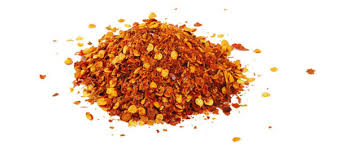
It is a rich source of vitamin C and also contains bioflavonoid that helps improve blood circulation and reduces pain in your swollen veins.
- Mix a teaspoon of cayenne pepper powder in a cup of hot water and drink thrice a day for a month.
2. Olive Oil
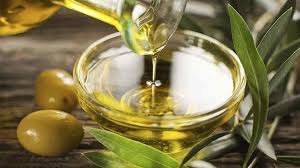
You can treat your varicose veins by improving blood circulation to the area, and you can achieve this by massaging your legs with olive oil. It also helps reduce pain and inflammation.
- Combine equal amounts of vitamin E oil and olive oil. Now, warm it slightly and then massage the affected area for several minutes at least twice a day. Stick to this remedy for a couple of months to get results.
3. Garlic

Garlic works great to reduce inflammation. It helps eliminate toxins from your blood vessels, which in turn improves circulation and reduces symptoms associated with varicose veins.
- Take six garlic cloves in a jar.
- Now, add the juice from three oranges to the jar along with two tablespoons of olive oil. Leave it for 12 hours.
- Take some of the mixture and massage it on to your affected area. Move your fingers in a circular motion for at least 15 minutes. Then, wrap a cotton cloth around the area and leave it overnight.
4. Gentle Massage
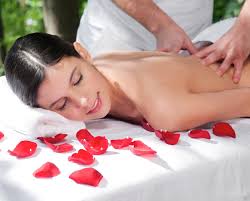
You get varicose veins when the blood circulation in that area is compromised. Anything that would improve the flow of blood to the area will help treat your varicose veins. Massage is one of the best options. Whether you use ACV or use something else, massage will always help to some extent. Be sure to massage the area with gentle upward strokes to improve circulation. Along with a gentle massage, you should consider keeping your legs elevated for a few minutes every day.
5. Try Compression
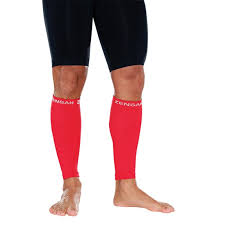
A gentle massage will always help reduce the symptoms of varicose veins, but you can also apply uniform pressure to the area to deal with this problem. You can find specially designed compression stockings to apply pressure to the area. You get varicose veins when the blood vessels lose their elasticity and become enlarged, but consistent pressure with the help of compression stockings can reduce the diameter of those blood vessels and limit the backflow. By using compression stockings early, you can slow down the progression of the condition.
6. Dietary Support
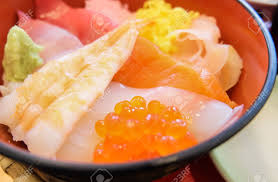
Besides apple cider vinegar for varicose veins, diet also helps in this case. Research shows that you are likely to develop varicose veins when there is an increase in homocysteine levels in your blood. The levels of homocysteine may go up when you are deficient in folic acid, pyridoxine, or cobalamin. Therefore, it makes sense to tweak your diet a bit and ensure that you are getting enough vitamins. You can include food like shrimp, salmon, tuna, eggs, and turkey in your diet to get folate, vitamin B12, and vitamin B6. Potatoes, sweet potatoes, bananas, avocados, sunflower seeds, lentils, broccoli, and lima beans are also some nice food choices.
7. Stay Active

Your sedentary lifestyle may also contribute to the development of varicose veins. When you are inactive, it is difficult for your calf muscles to supply blood back to the heart. You should stay active and avoid sitting or standing for extended hours.
- Be sure to take frequent breaks if your job involves sitting in front of computer.
- You should also move your ankles in a circular motion every now and then to promote better blood circulation.
- Swimming is another low-impact exercise to improve blood circulation and prevent varicose veins.
